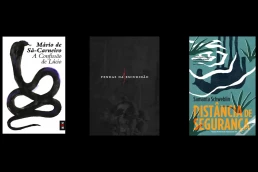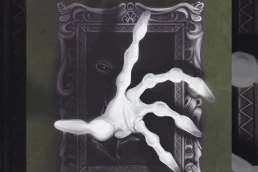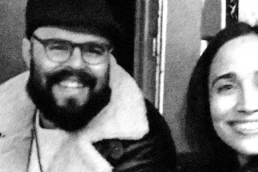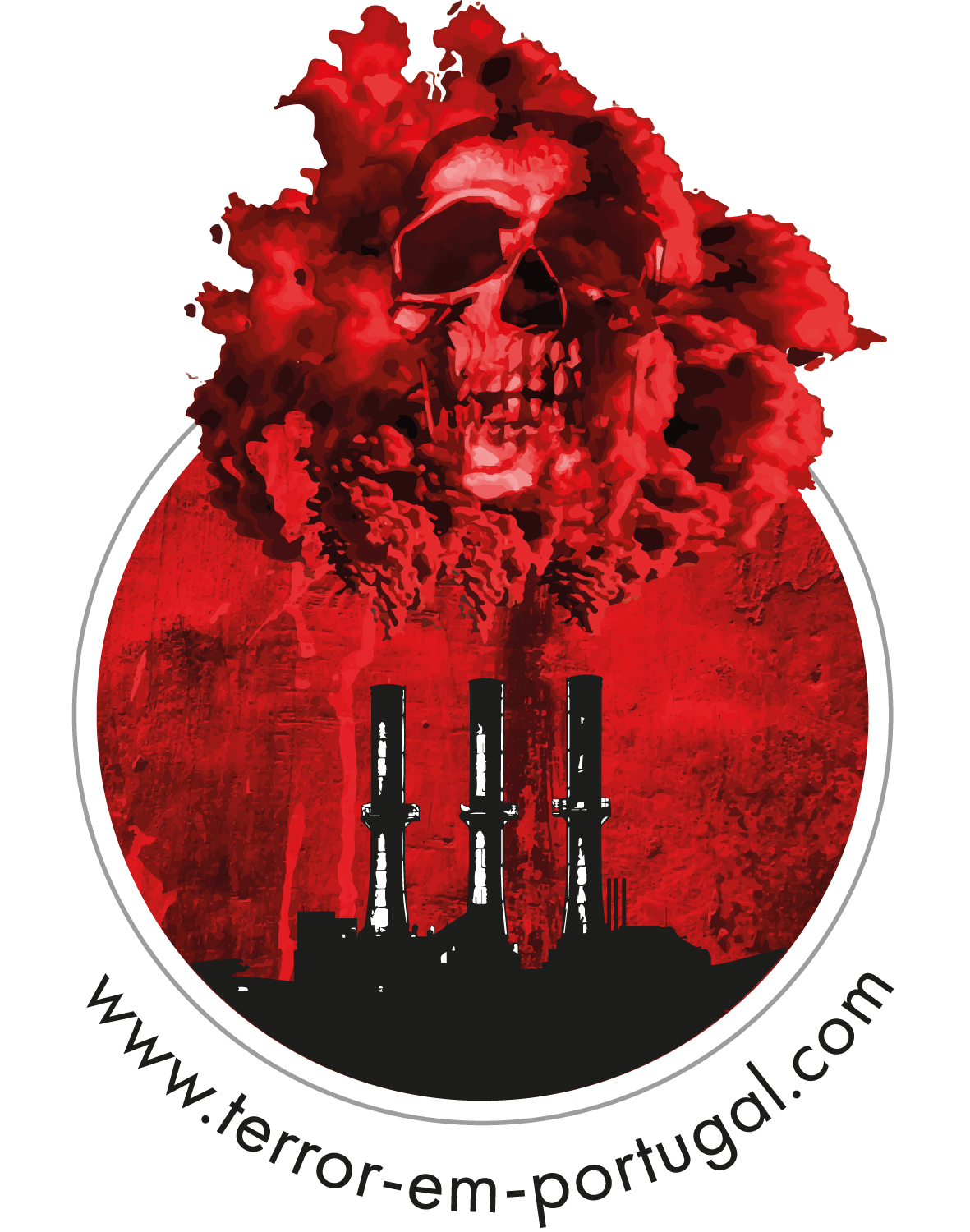Interview with Ai Jiang and Madalena Santos
LINGHUN, Jiang’s award-winning novella translated into Portuguese
«I wanted to bring that exploration into LINGHUN and what it would be like if the ghosts are slightly different for everyone and it’s the living haunting the dead.»
LINGHUN, Ai Jiang’s award-winning debut novella, conquered the Portuguese-speaking market in 2025. Published by Nuno Gonçalves’ Barca and translated by Madalena Santos, not one part of the book’s soul was lost in the process.
In the Summer of 2025, I sat with Ai and Madalena via Zoom for a chat on writing, translating, ghosts, family, and anything in between.
When Nuno [Gonçalves] asked me for suggestions of horror books to bring to Portugal, I had to give him a pitch. But I don’t like comparing authors nor comparing books. But I told him to imagine a Shirley Jackson story, but not a Shirley Jackson story at all. LINGHUN is a very local story, but also very global. Some people will connect to it more closely, but everyone will understand the story. And I think that’s your style.
Ai Jiang: It’s funny because I recently wrote like my heart book, a novella that has 8 perspectives but like 30,000 words. It was too much, but it was basically a brain dump. And then I had later rewritten it into the latest book I finished, and I feel like all my heart books, because LINGHUN was also one of my heart books. It has this quality to it because everyone who has read it tells me it’s so specific, but it’s also universal at the same time. I guess it is like a running thread line in my work.
Was that your plan all along? How does this story start?
AJ: I had written it as a very short 800-word flash piece, because I was thinking about the idea of how ghosts and haunting has been depicted in mass media so far, and how it’s always ghosts haunting [living] people. And I wanted to turn it around on its head and explore. What would it be like if it’s the people, the living, haunting the ghost instead? I feel like whenever we think about the idea of ghosts, it’s passed loved ones, passed people who have been stalled in time. And whenever I was thinking about different memories of these people who have passed on — for example, like my uncle who had passed away —, my memory of him is very different from my mother’s memory of him, simply because when I had last saw him, I was very young and I hadn’t visited my hometown in a long time. So, his ghost in my mind is a very different ghost from my mom’s, because she went to visit him at the end of his life. I wanted to bring that exploration into LINGHUN and what it would be like if the ghosts are slightly different for everyone and it’s the living haunting the dead.
It’s also a family drama because the parents favorite one of the children and the other one feels unseen. And the detail of the mother cooking all the son’s favorite dishes and not the daughter’s. Do you have siblings?
AJ: I do, I have a younger sister. It’s actually very funny this family dynamic because me and my younger sister we’re five years apart. I was born first and in China I had a whole ton of cousins who are much older than me. I think my youngest cousin at that time when I was 1, he was 14 maybe, around that age. So, everyone really spoiled me. I was always the spoiled child growing up. And then when my sister came, it was like, what is this? What is this new human being in this world? [laughs] And she’s not a very picky eater, but I’m an extremely picky eater.
And I’m sure your mom does everything you like just to force you to eat. [laughs] This book has been translated into Spanish, Portuguese, and Chinese, so far. Were you expecting this international success?
AJ: No, but it’s something that I have always wanted for my books, to reach audiences all over the world because I tend to explore, or at least I try to explore, very universal themes or questions I have more broadly about life.
And your writing is also very intentional and intense. I follow you on Instagram and you always have a project, a book coming out, a short story coming out. It’s clear that writing is not just a hobby or you’re waiting to see where this goes. I don’t know if you have a plan that you’re following, or you just have so many ideas that you just have to put them all out and you’re just trying to keep up with it?
AJ: I think it’s a little bit of both, because I tried a bunch of careers when I graduated, mostly teaching, some coaching. And then I did some ghostwriting, too. And I was thinking about what I wanted to spend the rest of my life doing. And I feel like I am the type of person who loses attention really quickly. But once I find the one thing that I’m fixated on, I’m literally like this is the only direction I can go. And there’s no backup plan. The train is going; if the track is broken, it’s still going. I did not give myself another option. In terms of ideas, I feel I have so many questions that I don’t have answers to, and writing has been the best vehicle in at least trying to answer those questions. At the same time, every time I finish writing something, I’m like, «Oh no, but now my answer has changed». Now I have to write something else with this new answer in mind. And then «Oh no, it has changed again.»
As a writer, another thing I really appreciate about you is that you are very honest on your social media like about your rejections. One of your stories had been rejected 30 times or something like that?
AJ: Not one single story, but at that one market I was rejected 30 times. But I have had one story rejected 85 times before it landed.
Maybe I’m very impatient, but when it’s like the second rejection, I immediately kill the story. But 85? How do you do that?
AJ: I feel it’s not so much about confidence, «oh, I think this story is worthy, so someone will pick it up». It’s more like surely someone will pick it up if I send it out long enough. Kind of those door-to-door salespeople knocking on every door.
That’s a great image! Is your career easier now after winning the Bram Stoker Award in 2023?
AJ: I think yes and no. Yes, in that I think there’s more name recognition for me now. So, I get more invitations to anthologies and things like that, rather than submitting. My submitting count has drastically decreased compared to before. But it’s also harder in that, I don’t know if it’s because of the awards, but as my career goes on, I’ve gotten more and more critical of myself. I’ve seen more holes in my own work and have higher expectations for it. So, I become more unsatisfied with my work compared to before, but I can also see that they’ve improved.
Madalena this was your first big professional job, right?
Madalena Santos: I had the greatest experience, honestly, because no one working in translation in Portugal has 4 months to translate a novella. I was able to first do the whole translation and let it sit for a while and then review it so that I could change and make it the best it could be.
Did you make any decisions regarding the translation? Did you have to make any hard decisions or for you it was very easy to follow the flow of the story?
MS: I think it was easy for me. I feel like where the problems could come into would be the different points of view, the perspectives, because it’s three different ones. But it was written in first, second, and third person narratives, so I could focus myself in each narrative, switching into that character’s perspective, and writing for that point of view. And I really enjoyed that. I like writing and translating points of view and dialogue. It’s my favorite.
I liked that you kept the original title. How would you have translated LINGHUN into Portuguese? I don’t know if there’s a straightforward translation.
AJ: In English it’s spirit/soul.
MS: It would be ALMA in Portuguese or something like that.
ASo, it would still work perhaps. And people here are so happy that this book exists in Portuguese now. But, Ai, you don’t always write horror, right? There’s some sci-fi, too, like your latest book A Palace Near the Wind.
AJ: It’s more science fantasy. It’s a weird, secondary world fantasy mixed with steampunk. I think that’s how I would describe it. [laughs] But because of marketing categories, I think it’s predominantly marketed as fantasy.
One of your recent stories I read was One Relationship in Four Haircuts. It touches on topics of abusive relationships, body dysmorphia. Is it hard for you to write about certain topics or do you manage to distance yourself?
AJ: Usually, yes. I find that whenever I’m writing, I tend to step away from the story and take it in more like a psychological or philosophical lens. I am not too impacted by what I’m writing until after I’m done writing it, if it makes sense. Or sometimes I’m writing it in such a fugue state that I’m completely immersed in the story, and I don’t really reflect on it and the weight of it all until after I’m done writing it.
Do you plan to publish a collection of your short stories?
AJ: It’s funny because initially I landed an agent with a short story collection, but it hasn’t been picked up yet, so we are still looking, so hopefully fingers crossed. It’s been ready for three years.
What new books are coming out next?
AJ: My next book is coming out April 2026, the second installment of A Palace Near the Wind. And then my debut novel is coming out next Fall, also with Titan. I’m very excited about it because the POV in that is very interesting, too.
One last question. What would you tell someone who just started writing what is the best and the worst about it?
AJ: The worst thing I think is if you are trying to make a career out of it, the industry is very slow right now in terms of responses, buying things. Because the path of getting an agent and then getting a book sold, sometimes you hear the miracles where people get an agent within a week, or sell the book within a week. But then it’s more often that people are like, well this is my 6th book, the first five didn’t sell and I finally sold my sixth, but it won’t come out until five years later. That type of situation. I think that would be the worst thing. The best thing would be that I feel that the industry has really changed to slowly embrace more risk-taking work or, at least in horror, there are so many small presses now, you have more avenues to publish or work with. And more flexibility to do weird things, to do experimental things, compared to before, which is nice.
And Madalena, it’s your turn. One of the worst things and one of the best things about being a translator?
MS: I can talk about the general state of literary translation in Portugal. It’s a very slow industry and very badly paid. The prices are the same as they were 20 years ago. That’s the worst part. The best part is I really enjoy writing. I really enjoy knowing about very different things, and I feel like I came to the translation path because of that, because I can explore a book and be in one universe and then the next book is completely different. It teaches me something new.
GOSTASTE? PARTILHA!
Sandra Henriques
Sandra Henriques estreou-se na ficção especulativa em 2021, ano em que ganhou o prémio europeu no concurso de microcontos da EACWP com «A Encarregada». Desde aí, publicou contos em várias antologias de terror nacionais e internacionais e contribuiu com o artigo «Autoras de Terror Português» para a Enciclopédia do Terror Português, editada pela Verbi Gratia. Em 2022, cofundou a Fábrica do Terror, onde desempenha a função de editora-chefe.





